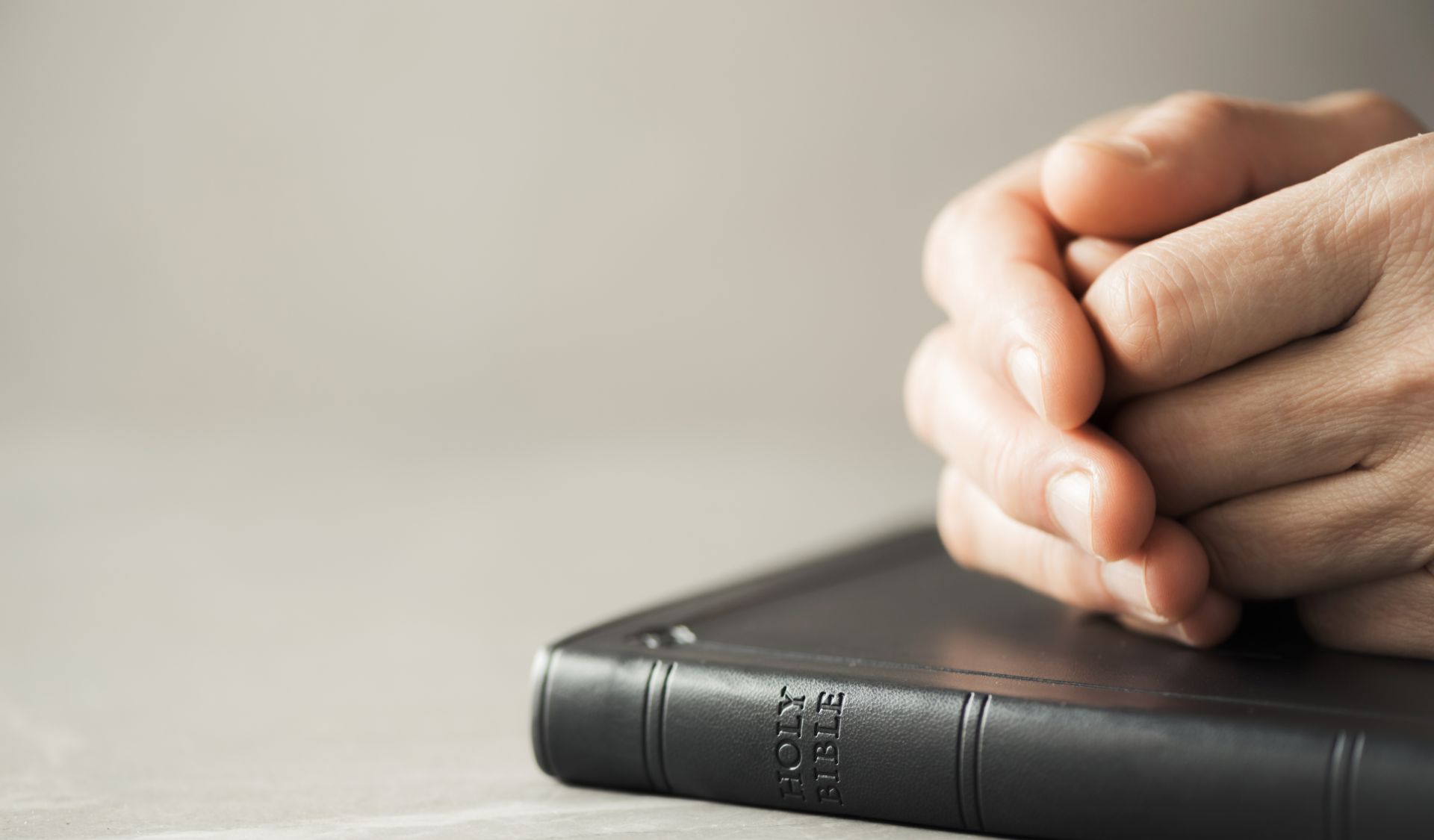Prayer is an essential spiritual discipline for every Christian believer. Prayer strengthens, matures, revives, and revitalises one’s soul. Prayer is the backbone for spiritual growth, maturity and sanctification and without it one would very quickly wither away and spiritually die. Without prayer, one loses the vitality and purpose in the Christian walk of faith; hence, Martin Luther so pointedly said, “To be a Christian without prayer, is no more possible than to be alive without breathing”.
A Christian’s prayer is not a set of incantations or magic formulae to appease God and get his favour. It is not to become a ritual or a religious tradition so as to benefit ourselves. Rather, it is a heartfelt affection born out of a desire to be in constant relationship and communion with God and to express our heartfelt worship and reciprocal love to Him and seek his guidance and favour in our lives. Prayer in and of itself is not to tick off a checkbox on a spiritual checklist and such prayer anyway is powerless, meaningless and a mere facade. But genuine heartfelt prayer to God, brings many fruits to the person who is praying. It humbles the heart, it grows dependence, it strengthens resolve, it bolsters faith, it invokes worship and it matures character.
Soren Kierkegaard once remarked: “Prayer does not change God, but it changes him who prays”. So, prayer is not for God’s sake but for our sake and so every true believer must take time to commune with God through prayer. Prayer as part of one’s personal devotion time is certainly a good habit and discipline to cultivate but our earnest desire should be to ‘Pray without ceasing’ (1 Thess 5:17) in the sense that our entire life should be saturated with prayer and regardless of what circumstances, situations or challenges we face and however inconducive it might seem for us to spend time in prayer, we always continue in a spirit and attitude of prayer all the time knowing that only God can save us and He is faithful to do so if we come to him in genuine repentance and dependence.
Prayerlessness, on the other hand, can create a spirit of self-reliance. A lack of prayer or a feeble prayer life is sending a clear yet wrong signal that we can do everything by our own strength and merit and that there is no need to depend on God or surrender to Him. It also depletes us from a source of strength and spiritual vitality which comes from God alone. Prayerlessness creates a self-focussed attitude and sidelines God in our lives. Without prayer, we are unable to function spiritually since our source of strength, power and encouragement is severely hindered.
A Christian’s prayer is not a set of incantations or magic formulae to appease God and get his favour
The benefits of prayer are manifold and are a great source of blessing for us. It humbles us before God where we acknowledge our inabilities and weaknesses. It strengthens our spiritual person and we show trust, reliance and dependence on God. It provides us a means to go to God to seek his help and intervention in our life anytime, anywhere and in all circumstance. It also reduces our dependence on self and increases our dependence on God. Prayer shows us that in and of ourselves we lack the strength and ability to help ourselves, and only God can come to our rescue if we call out to Him. Prayer also aligns our heart with God’s purposes and instead of using prayer as a means of coercing God to accomplish our goals and desires, prayer aligns our heart to what is in God’s heart, thereby letting us live lives that please and honour Him and accomplish his grand redemptive plans for the world. Prayer shows God that we are serious about our relationship with Him and that we surrender our plans to His, our purposes in life to His and our reputation and fame for His name’s sake and our suffering for the sake of His glory to be manifested in all we say and do and our priorities and comforts for His Kingdom to be established more firmly and grow more exponentially.
When we look to who can be a great role model for prayer, and whilst there are many good models of prayer in the Bible, we find no one greater than Jesus Christ himself. His prayers show us that (i) he considered prayer as communion with the Father and would often retreat to lonely places to pray; (ii) prayer was his strength to perform miracles, wonders, healings and exorcisms; (iii) Christ’s dependence was on God through prayer and his prayer was with the intent of showcasing God’s glory; (iv) his prayer life was exemplary and in spite of fatigue of active ministry, he never compromised on prayer; (v) even as his crucifixion drew near, his desire to pray grew stronger and he would spend the whole night in prayer; (vi) with passionate pleas, he would come before God but at the same time he would surrender his will to God. Prayer humbled him to accomplish God’s will: (vii) His prayer was always for the harvest of souls and for the lost to be found and gathered into God’s Kingdom; (viii) prayer was a teaching mechanism to him even as he showed his disciples how to pray to the Father and how to overcome the power of darkness and evil; (ix) his prayers showed an indelible trust and confidence in the sovereignty and power of God and (x) prayer was his weapon to defeat the onslaught of the evil one.
When it comes to what to pray for, we inevitably discover that our prayers are often self-centred. They are earthly focussed and inward looking focussing on our own issues, needs and requests. Our prayers are filled with our own petitions for safety, comfort, protection and promotion.
When we look to who can be a great role model for prayer, and whilst there are many good models of prayer in the Bible, we find no one greater than Jesus Christ himself.
So, is there a right way to pray? How did the Lord teach his disciples to pray? The Lord’s teaching on prayer (Mt 6:9–13, Lk 11:2–4) presents a good model of how to pray and what to pray for—we pray for the Heavenly Father’s name to be glorified and praised because He is holy, righteous and worth of our praise. We pray for His Kingdom to be fully established on earth even as it is already inaugurated and will be more firmly established in the future when Jesus returns a second time to rule and reign. We pray that His will be done on earth even as it is done in heaven and that our hearts would be governed by His will and plans. We pray for daily bread to be given to us and for us to be content with what we have and to rely on God for his provision. We pray that we have a heart to forgive others just as the Lord has forgiven us of our sins and shortcomings and cleansed us of all unrighteousness. We pray that the Lord would protect and shield us from trials and temptations and that we would be delivered from all evil. What a marvellous model of prayer the Lord has taught us.
A further example of diligent, sincere and heartfelt prayer is the disciple’s prayer for boldness in Acts 4:23–31. Here Peter and John had just been released from prison and instead of running for cover to hide in fear and shame, they gathered together with those who had been praying for them and continued in prayer to God. As they prayed, they acknowledged (i) that the Lord is sovereign and that he is the creator and sustainer of the world; (ii) that God has a plan from the beginning of time for sending Christ who was crucified for the sins of God’s chosen people; (iii) that God is powerful and able to demonstrate it through signs and miracles to heal and restore; (iv) that they would continue to be witness of his saving grace, mercy and benevolence and (v) with boldness to proclaim the Word of God so many more would be drawn to Him. Again, what a magnificent model of prayer especially when faced with trials and challenges.
As writer Corrie Ten Boom would say: “Is prayer your steering wheel or your spare tire?” How true it is that we resort to prayer when all else has failed and we have no other option before us than to pray. How better it would be if we resorted to prayer as the first resort and hand over the steering wheel of our life to God. Even in these unprecedented times where our lives have been turned upside down, and when we lack the strength and resolve to go on, let us fall to our knees in prayer knowing that God is faithful and if we who are called by His name, will humble ourselves and pray and seek his face, and turn from our wicked ways, he will hear us from heaven and forgive our sin and heal our land (2 Chron 7:14). Come, brothers and sisters, let us pray earnestly that the Lord would forgive us and restore us!






